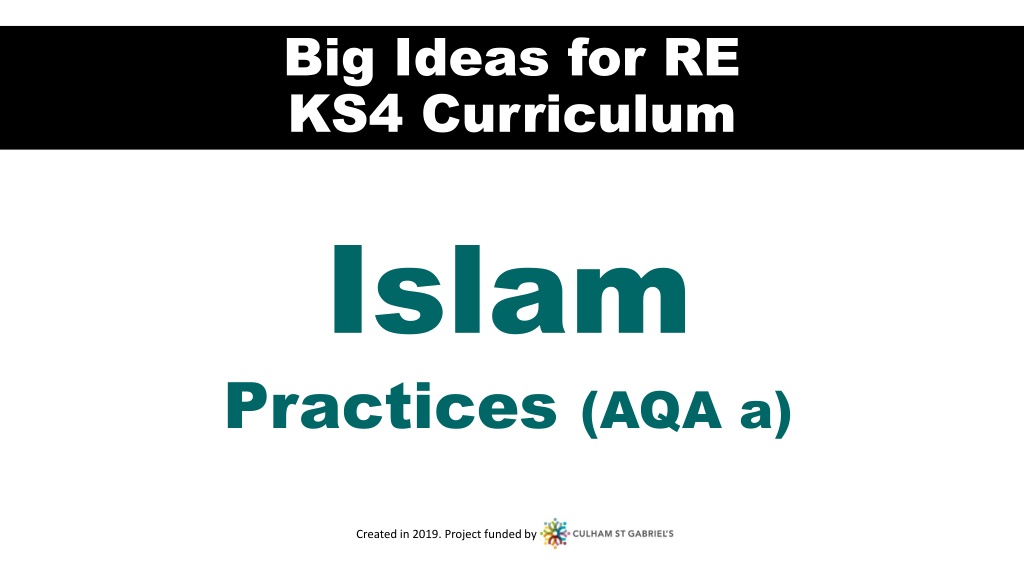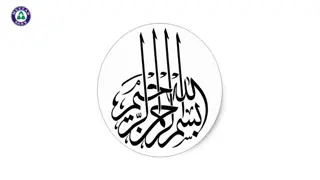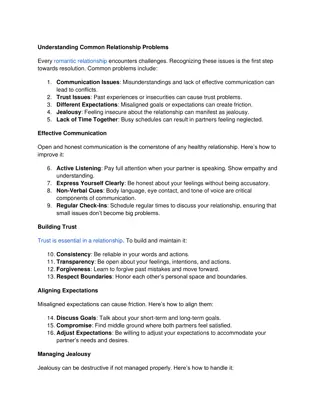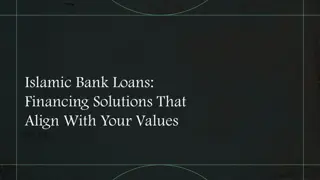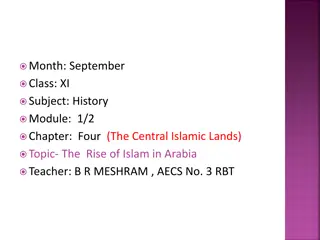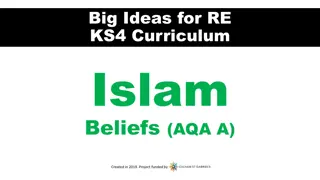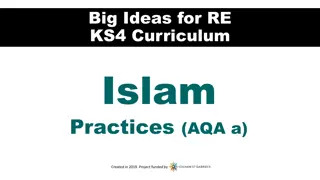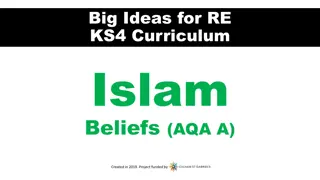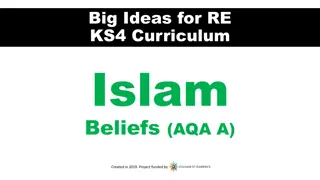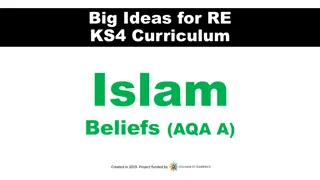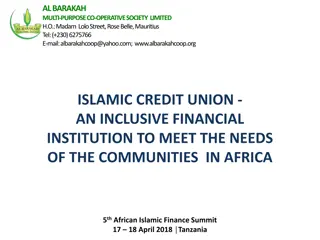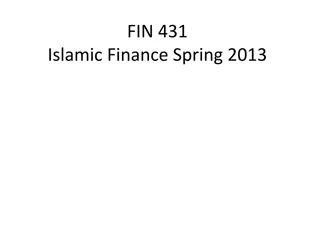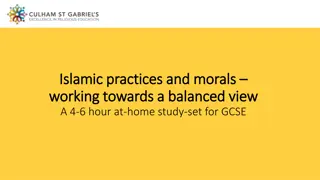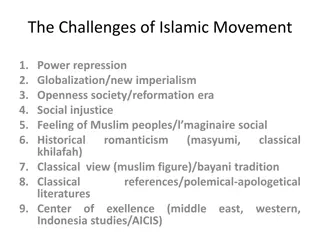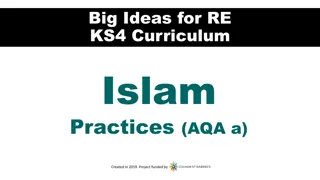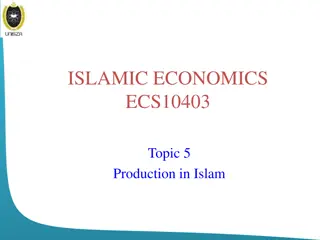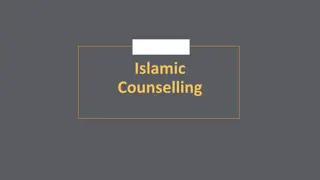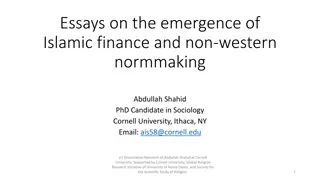Exploring Islamic Practices - Big Ideas for the KS4 Curriculum
Dive into the rich traditions of Islam through the lens of Eid ul-Adha and Eid ul-Fitr, understanding the connections to key beliefs and historical contexts. Explore mythical and historical knowledge, assess conflicting accounts, and create engaging educational resources for primary school readers.
Download Presentation

Please find below an Image/Link to download the presentation.
The content on the website is provided AS IS for your information and personal use only. It may not be sold, licensed, or shared on other websites without obtaining consent from the author. Download presentation by click this link. If you encounter any issues during the download, it is possible that the publisher has removed the file from their server.
E N D
Presentation Transcript
Big Ideas for RE KS4 Curriculum Islam Practices (AQA a) Created in 2019. Project funded by
5: Celebration 5: Celebration BIG IDEAS LEARNING BELIEFS: beliefs and theology underpinning Eid festivities CONTEXT: Eids in the context of Ramadan (Eid ul fitre) and Hajj (Eid ul Adha) From the spec Britain today, including origins and meanings of Id-ul- Adha, Id-ul-Fitr Learning outcomes: Explain at least two key traditions of Eid ul-Adha Show connections between Eid ul-Adha and Ibrahim s sacrifice Explain at least two key traditions of Eid ul-Fitr Show connections between Eid ul-Fitr and hajj mythology Festivals, their importance for Muslims in Resources 5 Story of Eid
Lesson 5 Show an image of the Jamarat of Hajj. Recap what they signify (Ibrahim, Ismail and Hajar s refusal to be tempted to disobey God). Discuss why this act is honoured in Islam. In fact it is the basis of Eid ul-Adha (great Eid). Recap mythical and historical knowledge from the beliefs paper (next slides). Discuss what type of knowledge the information about the Jamarats is. Students will make a Story of Eid booklet, as if for a primary school age reader. They will explain the modern festivals of Eid ul-Fitr and Eid ul-Adha and put them in historical and theological context Hand out 5 Story of Eid info sheet. Groups follow the framework and complete the task. NB: do not draw Muhammad or God. Find images of both Eids celebrated in other countries such as Saudi, Turkey or Iran. In Majority Muslim countries the Eids are public holidays. EXTENSION: show historical and mythical knowledge in your booklet, explaining it as if for a Primary age reader. Look at groups booklets.
Also known as mystical knowledge Stories about gods and heroes which inspire courage Looking for evidence of bias Mythical Knowledge Meaning; belonging; hope that things can be better Assessing the validity of conflicting accounts Comparing different evidence to build up understanding Historical Knowledge Stories which contain a moral lesson Records of the past which shed light on the present Stories which explain suffering and evil Eye witness accounts and physical evidence
Historical Knowledge Mythical Knowledge EXAMPLES Samuel Pepys diary describes the Great Fire of London in 1666 God chose Moses to free the Hebrews from slavery in Egypt What happened, why did things happen, dates, people, events, causes. Based on archaeological and written sources. Stories of gods and heroes, accounts of incredible events which give meaning, hope and a sense of belonging. Explanations for suffering and evil .
